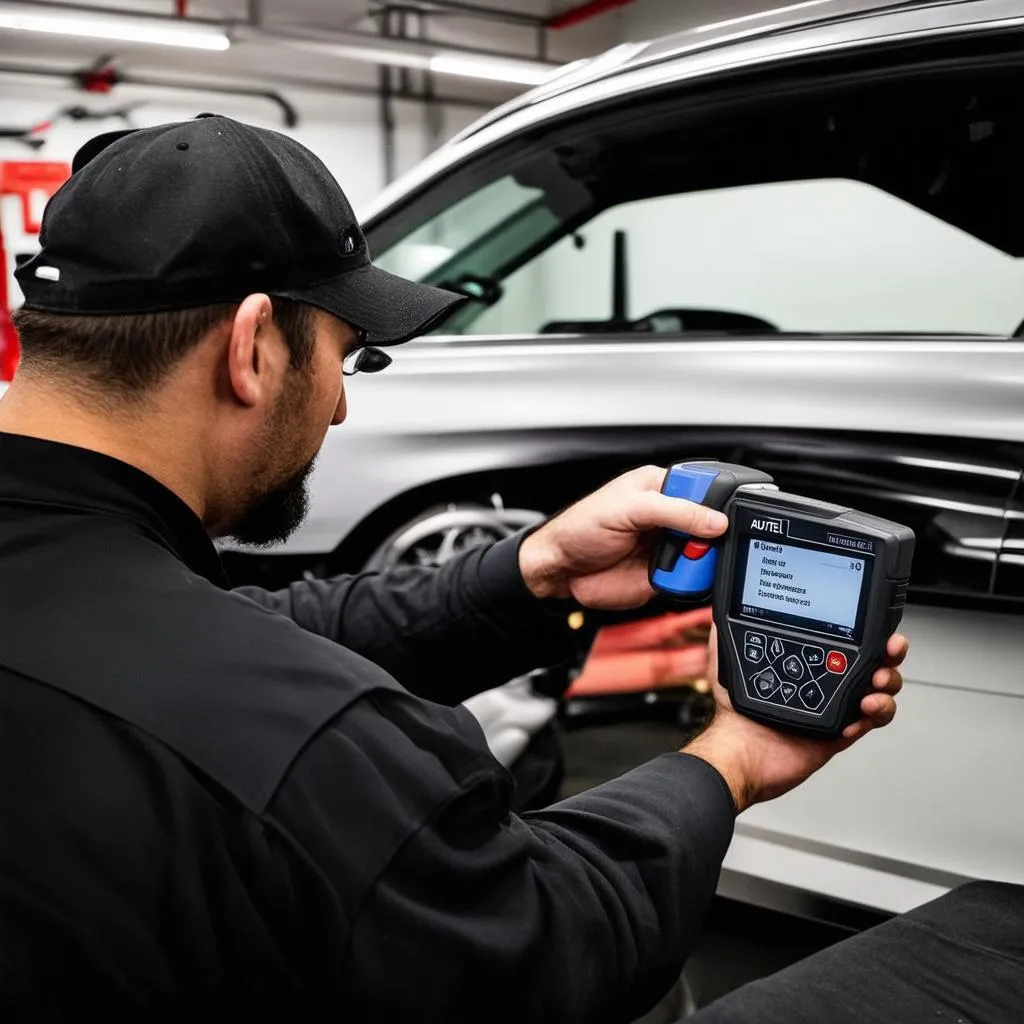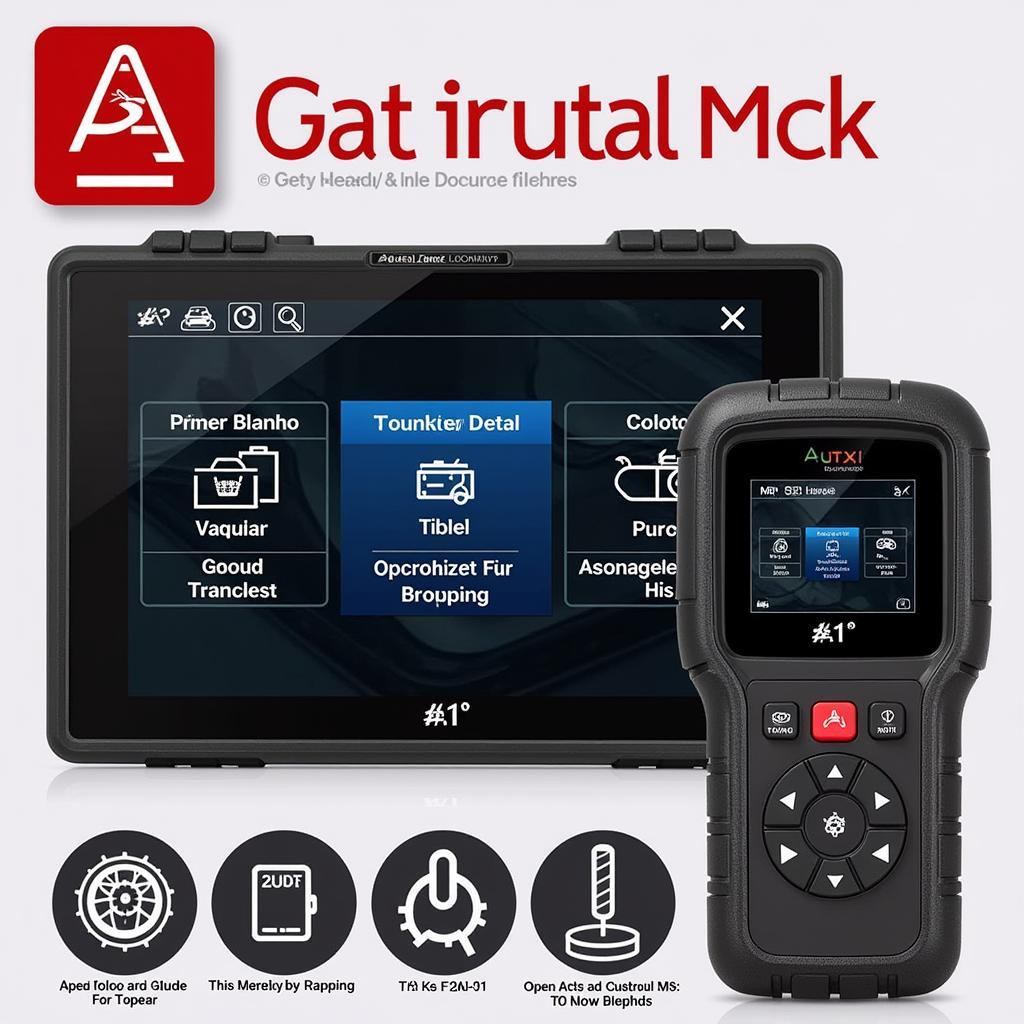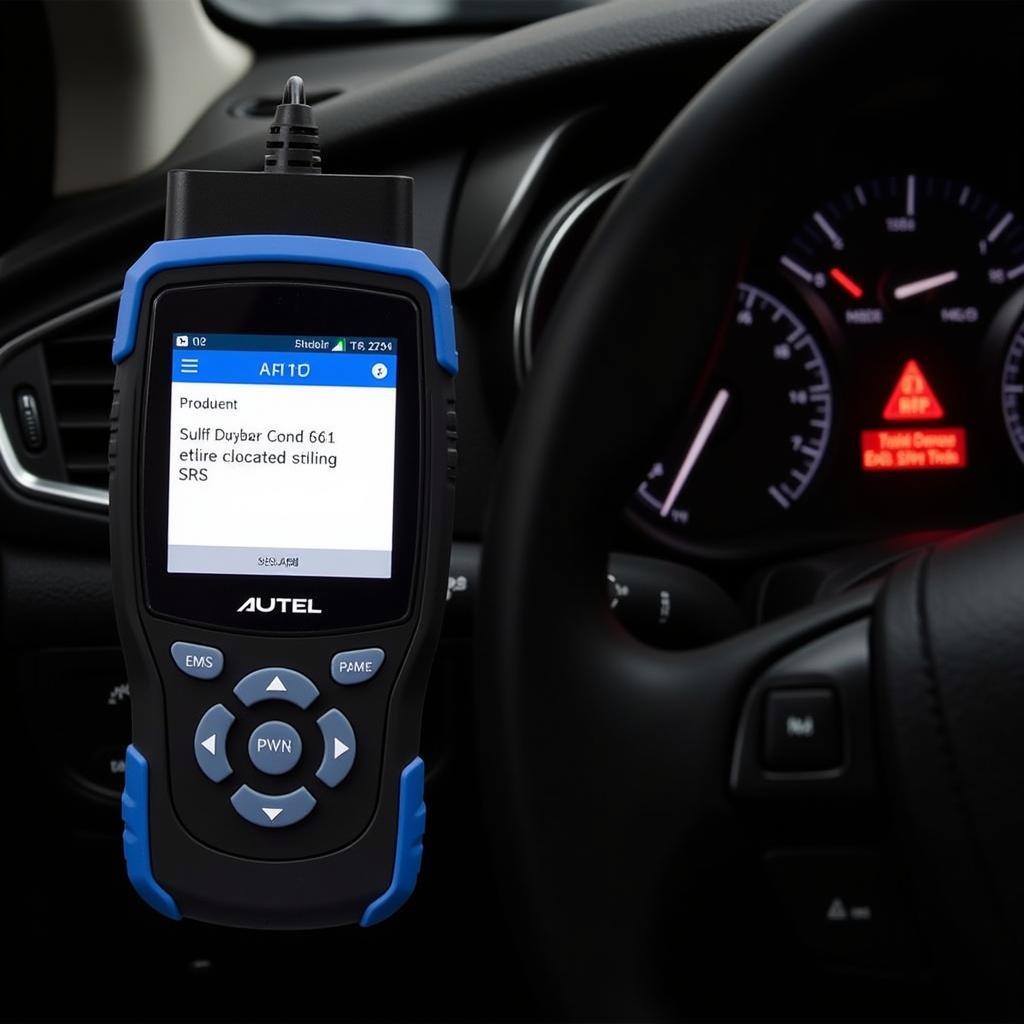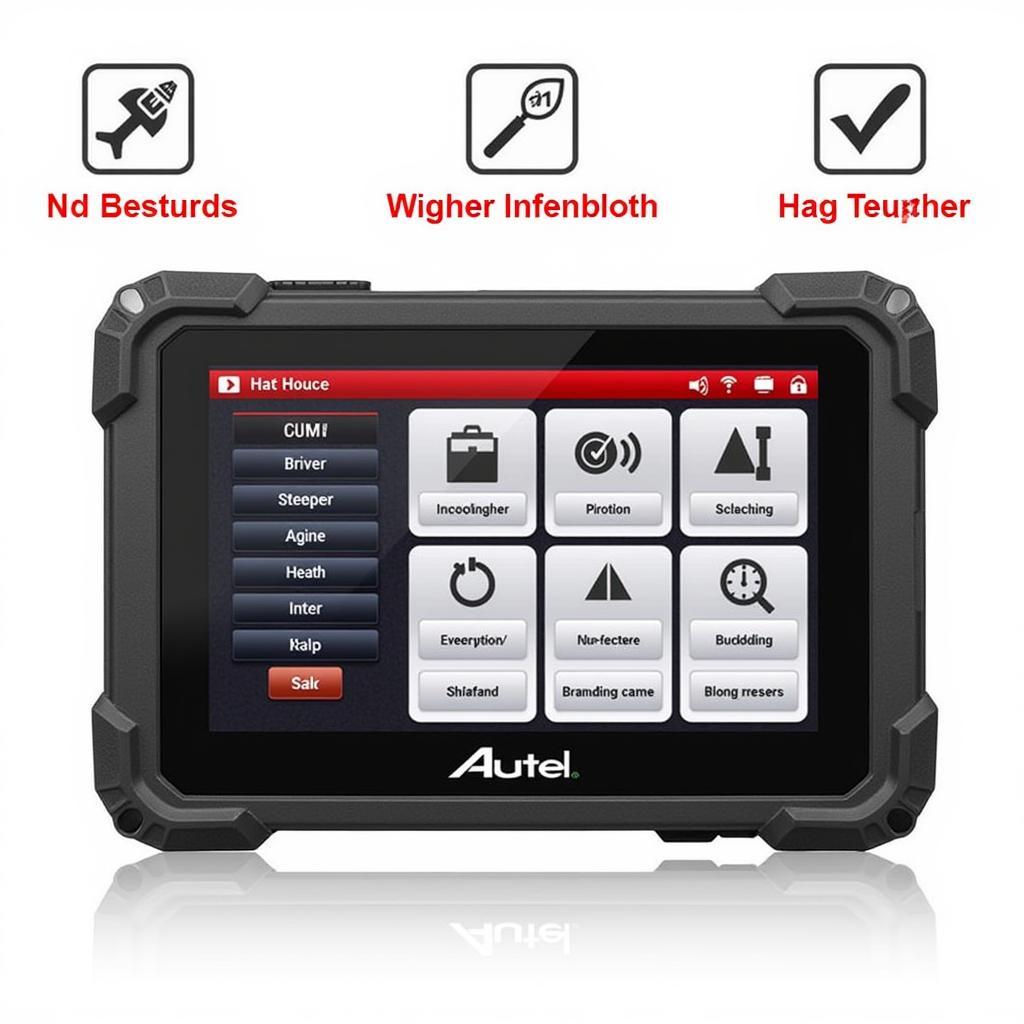“My Autel scanner just threw up a P0420 code. What does that even mean?”
Sound familiar? You’re driving down the road, maybe cruising down Highway 1 in California, enjoying the scenery, and bam! That pesky check engine light pops on. You pull over, whip out your trusty Autel scanner, and there it is – the dreaded P0420 code. Don’t panic! It’s a common issue, and understanding it is the first step to getting back on the road.
Deciphering the Autel Code P0420
Let’s break it down:
- Autel: Refers to the brand of your trusty diagnostic tool, known for its reliability and user-friendliness amongst car enthusiasts and mechanics alike.
- Code P0420: This is the heart of the matter. It’s a generic OBD-II code (On-Board Diagnostics, version 2), meaning it applies to most cars made after 1996. The code itself signals a potential problem with your vehicle’s catalytic converter system.
In simple terms, the P0420 code means your car’s computer thinks the catalytic converter isn’t doing its job efficiently.
“But why should I care about a catalytic converter?” you ask. Well, this unassuming device plays a crucial role in reducing harmful emissions from your car, making the air we breathe cleaner.
What Does a Catalytic Converter Do?
Think of your catalytic converter as a mini-chemical plant tucked away in your exhaust system. It converts harmful pollutants like carbon monoxide (CO), nitrogen oxides (NOx), and unburned hydrocarbons into less harmful substances like carbon dioxide (CO2), nitrogen (N2), and water (H2O). Pretty neat, huh?
Why Does the P0420 Code Pop Up?
Several culprits could trigger a P0420 code:
- Worn-out Catalytic Converter: Like any hardworking component, catalytic converters have a lifespan. Over time, the precious metals inside can degrade, reducing their effectiveness.
- Faulty Oxygen Sensors: Oxygen sensors, often located before and after the catalytic converter, monitor the exhaust stream and report back to the car’s computer. A malfunctioning sensor can send inaccurate data, triggering the P0420 code.
- Exhaust Leaks: Leaks in your exhaust system, especially before the catalytic converter, can disrupt the exhaust flow and skew oxygen sensor readings.
- Engine Misfires: Misfires dump unburned fuel into the exhaust, overwhelming the catalytic converter and potentially damaging it.
Diagnosing the Problem
Now that we understand the “why” let’s figure out how to tackle the P0420 code.
- Check for Other Codes: Sometimes, the P0420 code might be accompanied by other codes, providing valuable clues.
- Inspect for Leaks: A visual inspection of your exhaust system, especially around the catalytic converter, can reveal any leaks.
- Test the Oxygen Sensors: Using your Autel scanner, you can check the oxygen sensor readings. A mechanic can perform more in-depth tests if needed.
Getting it Fixed
Ignoring a P0420 code can lead to more severe problems down the road, including decreased fuel efficiency, failed emissions tests, and even engine damage. Here are some common fixes:
- Replacing the Catalytic Converter: If your catalytic converter is worn out, replacement is the most effective solution.
- Replacing Faulty Oxygen Sensors: Faulty oxygen sensors should be replaced to ensure accurate readings.
- Repairing Exhaust Leaks: Welding or replacing damaged exhaust components can fix leaks and restore proper exhaust flow.
- Addressing Engine Issues: If engine misfires or other issues are causing the P0420 code, fixing them is crucial.
 Autel scanner diagnosing a car
Autel scanner diagnosing a car
Frequently Asked Questions About Autel Code P0420
Q: Can I still drive my car with a P0420 code?
A: While you might not notice any immediate drivability issues, driving with a P0420 code for extended periods is not recommended. It can lead to further damage and potentially leave you stranded.
Q: How much does it cost to fix a P0420 code?
A: The cost can vary depending on the underlying cause and your car model. Oxygen sensor replacement can range from $100 to $300, while catalytic converter replacement can cost anywhere between $500 to $2500 or more.
Q: Can I fix a P0420 code myself?
A: While some repairs, like replacing oxygen sensors, can be done with mechanical know-how and the right tools, it’s generally recommended to consult a qualified mechanic, especially for more complex issues like catalytic converter replacement.
Seeking Expert Help
Navigating car troubles can be frustrating, but you don’t have to go it alone. If you’re facing the Autel code P0420 or any other automotive conundrums, don’t hesitate to reach out to our team of experts. We offer 24/7 support to help you get back on the road quickly and safely.
Need help installing diagnostic software or interpreting those cryptic codes? Contact us via Whatsapp at +84767531508, and our expert technicians will be happy to assist you.
Keep Exploring
- Learn how to use Autel Diaglink OBD2 Car Code Reader
- Troubleshooting Autel Check Codes
- Understanding Autel Diagnostic Codes
 Mechanic repairing exhaust system
Mechanic repairing exhaust system
We hope this guide has shed some light on the Autel code P0420 and empowered you to tackle this common car issue. Remember, a stitch in time saves nine, and addressing car problems promptly keeps both you and your vehicle happy and healthy. Drive safe!


